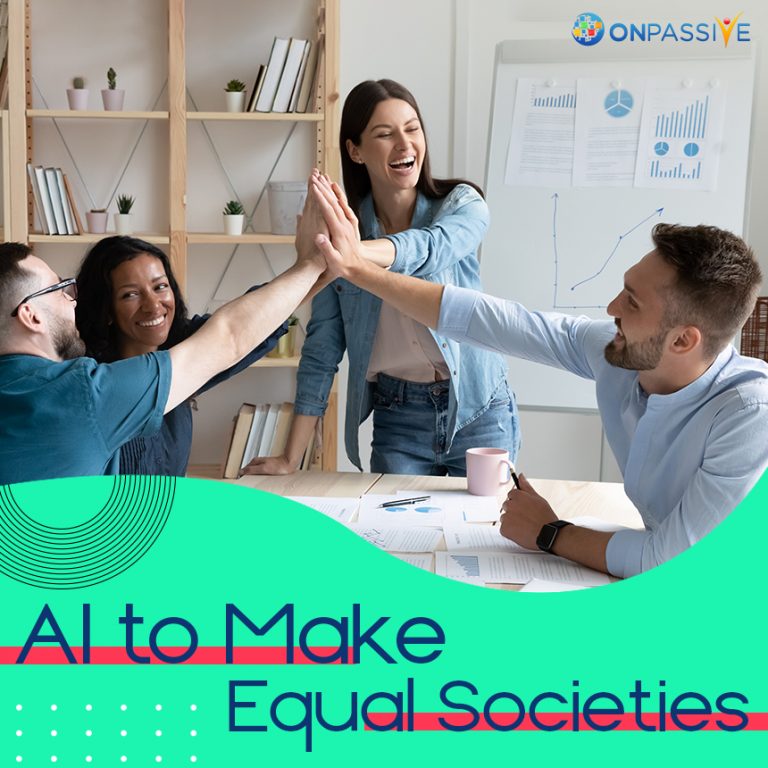
We are dealing with a conflux of opportunities and challenges nowadays. Due to the drastic changes in people’s needs and behaviors, some AI systems adoption becomes crucial. Getting the Right AI systems are highly critical, but it’s complicated. Hence there is a huge need for companies to create and develop ethical and responsible artificial intelligence systems.
Need for the Elimination of a Bias with Ethical AI
Biased AI is prone to error, and to make accurate AI, elimination of the biased variables is needful. For example, consider a financial institute’s AI system attempts to measure the repay ability of a customer. Let’s say this AI solution predicts the ‘repay ability’ based on wrong parameters such as considering the protected variables like gender or race (though these are not legal), or proxy variables like location or Zipcode, which is a correlated data. It shows the biased outputs like giving preference to one race, thus eventually leads to putting financial institutes at risk by predicting unjustified outcomes. The institute may lose some high paying people and approve loans to someone who is not capable of paying loans. This will also make some eligible customers take predatory lender’s support despite being eligible to get the financial institution’s loan.
Including proxy variables, gender, and race in the model is not wrong, but considering this data to make decisions is not a good strategy. If the loan is rejected to the customer, showing an eligible micro-loan is more beneficial for the company and people. Above all, organizations need commitment and awareness to build ethical AI systems.
Let’s explore four strategies to build Ethical AI.
#1. Recognize the hidden bias of your processes and systems
It will be challenging to assess the data without any bias, as every data carries some influential underlying condition. It is better to check the decision-making process while considering the sensitive variables such as:
- Any race, gender, etc. factors are not placed well to make a decision?
- Any variances like region or religion are impacting the decisions?
- Are any groups weighed disproportionately based on the size?
If you find any bias, then eliminate that from the process before feeding the information into the AI system. Focus on core values such as customer empowerment, product development, and employee education to build an AI system.
At ONPASSIVE, we introduce Ethical AI to our new products, and ethical decision making is our key consideration, and we adopt high-security practices. ONPASSIVE product teams strive to review ethical risks and give high value to responsible AI when developing solutions.
#2. Examine your data-driven assumptions
To obtain high-quality decisions; you not only focus on the features but must understand the people who get impacted by the technology and its down line effects. We need to examine the answers for the below questions like:
- What assumptions impact people’s values?
- Who are the data resources? Is anything missing?
- Who is prone to get the greatest risks due to this system?
- Is the collected data is enough to form the decisions?
Determine the criteria based on income, geography, race, and gender. Always take fair criteria that will not affect anybody without a valid reason. Generalized group decisions are prone to risk when developing AI Systems. For example, if a person is excellent at his work, we can’t take his gender and region while weighing others.
#3. Connect to the People who get impacted with the technology
Engaging with the directly affected people is the way to get genuine feedback for the developers of AI systems. Understanding the people’s concerns, needs, and context makes the artificial intelligence system creators develop unbiased applications. Hence personalization and collection become easily implementable. Hence, AI systems help to develop trustworthy guidelines and features for all products.
#4. Don’t opt for the make and break within quickest possible minutes
Fairness is most needful when creating an AI System by considering housing, food, health, privacy, and justice, and these factors need to be highly fair and accurate. Before the Covid-19, the companies are ready to make the things at fast intervals, and later the pandemic went down. Though the companies are trying to adopt quick adoption and the crisis has been thrown back.
One small correlation in the AI systems process leads to corrupt the giant portion of the network. Hence more weightage is given to safety, accuracy, and fairness while building the AI system. The ethical debt will keep your brand at risk, and you are going to lose for developing a faulty AI system.
At ONPASSIVE, Ethical AI is the primary condition, and we instill fairness and accuracy at every level.



Paul Parent
4 years ago